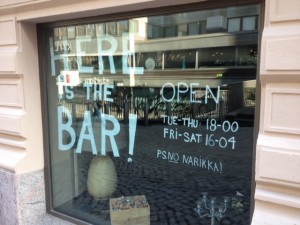Last week, while travelling in the UK, I experienced a first:
“I love your accent,” the man working at a cafe said to me when I ordered my drink.
I blinked at him in confusion.
“You love my accent?” I asked, looking around behind me to make sure he wasn’t talking to someone else.
I’m American. Furthermore, I am from the American West, which is by many considered to be a linguistic wasteland — look at any dialect map of the United States, and you will see a vast expanse of nothing, stretching (depending on the map and the features it illustrates) from either the Atlantic coast or at least from the Midwest, all the way to the Pacific Coast. My variety of American English is as general as general gets.
“Yes, I love the way you talk. In fact, your coffee is on the house,” he said emphatically.
I blushed and mumbled something about him making my day.* I am not one to say “no” to a free coffee.
No one “loves” the General American accent. Even Americans don’t love the General American accent. Ask any American about who speaks better, a Brit or an American, and that person will wax on and on about how wonderful British English is (yes, I am generalizing, but studies actually confirm this generalization). Do Brits have the same love for American English that we have for theirs? Heavens no! Pretty much since the time of the Founding Fathers, Brits have been blaming Americans for “ruining” English. (And for a host of other problems, of course.)
We Americans and our accent assault the airwaves and the media of ever corner of the globe. We are so commonplace as to render ourselves mute. No one even hears an American anymore, it seems. It’s all just background noise.
Here is an example.
One day, in downtown Helsinki, I sat with two friends, both from the UK, who were catching up on old times. One of the friends has a London accent, and the other is from Yorkshire. They were going on and on about the time they had studied together, and the four-letter words were flying. I mean, their vocabulary made me cringe. The server at the cafe, a woman in about her twenties, set down our drinks, turned to my friends, who barely stopped long enough to hear her say– and very distinctly only to them:
“I just love the way you talk!”
I was speaking English too, of course, but my voice didn’t count. Why? Because I am just another American. It didn’t matter if the stream of words coming out of their mouth would make a sailor blush, my friends were speaking British English, and that, in and of itself, made up for any amount of four-letter words. Their speech is “beautiful,” and mine is dull, common, everyday.
Even in places like Finland (where English is widely used as a foreign language) studies show that British English is considered more sophisticated, learned, and eloquent. Yet, oddly, many people, like the students of English at the university, for example, end up speaking English that sounds more American than British, simply for the reason already stated: they get more input in American English through various forms of media. It feels more “natural” for many of them–not all–to speak with an American accent.
And that is the double bind: American English is ubiquitous, which makes it somehow less special.
So of course I had to write a blog entry about the observation from a stranger:
“I love your accent.”
Chances are it is the only time in my life I’ll ever hear those words.
*I should noted that it was pretty clear that the man was not hitting on me; I have reached an age where that sort of thing just doesn’t happen. I really have no reason to believe he did not mean it when he said he loves my accent!

